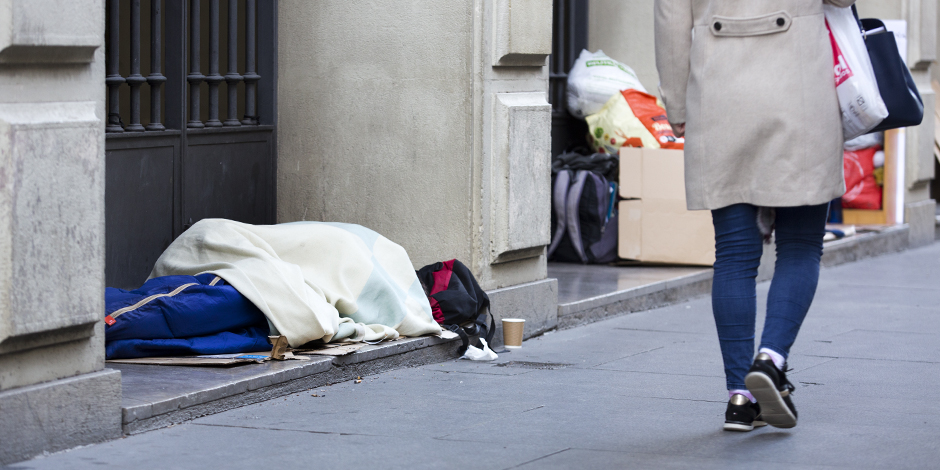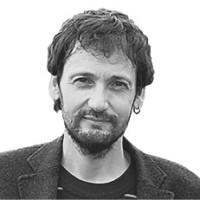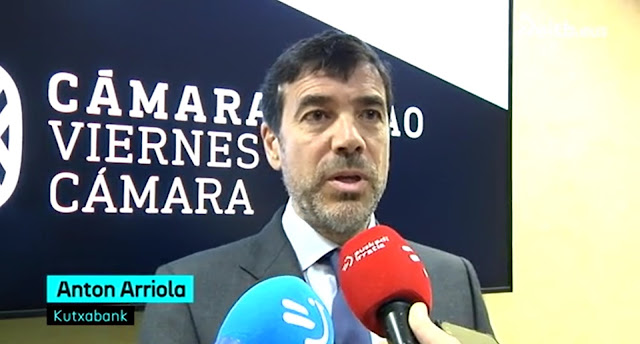In Russia, authoritarianism is getting stronger
In 2020, the Russian political system began a transition with the change of the prime minister and the reform of the regime. A new closed phase opens after the fall of the Soviet Union. We do not know very well how the transition has ended, but it is underway and Vladimir Putin and Russia Batua are clear that they want absolute control of design and development, they are not willing to negotiate and share rules and competitive framework with anyone.
In Russia the elections have a plebiscite character, that is, the political powers only serve to measure support for their activity. But this function is in the process of disappearing. Polls and the street environment clearly showed that discontent with government policies increased considerably, not least because of the mild but steady economic decline of recent years.
"The Communists have come out to denounce the alleged fraud, but as the protests have been growing, the party leadership has taken a step back."
However, the results of the 2021 Duma elections have been the third best result in the history of United Russia, with 49.8% support and the second best in seats, with 324 of the 450 deputies. Fraudulent allegations have multiplied, especially in Moscow, for the benefit of the government party due to changes in the results caused by the chaotic use of electronic voting. The main victim has been the Communist Party, which has been the party that has risen the most, but which has fallen far short of its expectations in the results, especially as regards the number of seats. Communists go out to the streets to denounce the alleged fraud, but as the protests expand, the party leadership takes a step back so as not to increase the tension of the conflict with the government. The decision has broken the Communists because Moscow has decided to continue to protest.
Putin, after the chaos of the 1990s, rebuilt state structures and brought economic development to the Russians. But after 20 years the hard times of former President Boris Jeltsin are far away, even more so when many citizens did not live them. Therefore, the violation of the legitimization of the political regime increases from two distinct fronts: on the one hand, from the lower classes that are suffering from the economic situation and neoliberal reforms, and on the other, from the liberal middle classes of the cities. Each has very different agendas, which makes Kremlin's response difficult to alleviate disgust. And that is that the only common point these two sectors have is the desire to overthrow the power that Putin represents. Thus, the path taken by United Russia is to close the regime and deepen authoritarianism. This will inevitably deepen the incipient collaboration between oppositions.
This opposition does not have an easy job. Cremline will strengthen the argument of the foreign threat to strengthen authoritarianism and denounce that the opposition is at the service of external interests. Such attitudes have become common in Western countries, although interventions and attacks abroad have been very limited. If things are like this in our case, imagine how Kremlina can use this argument with the innumerable and violent speeches that Russia suffers. Western pressure on Moscow erodes the country ' s economy and legitimizes the government, but at the same time it becomes the main weapon of the reinforced trend towards government authoritarianism. Meanwhile, Jeltsin and now Putin have a single alternative for the time being: Communist Party, despite the fact that many media have wanted to hide.
Bidali zure iritzi artikuluak iritzia@argia.eus helbide elektronikora
ARGIAk ez du zertan bat etorri artikuluen edukiarekin. Idatzien gehienezko luzera 4.500 karakterekoa da (espazioak barne). Idazkera aldetik gutxieneko zuzentasun bat beharrezkoa da: batetik, ARGIAk ezin du hartu zuzenketa sakona egiteko lanik; bestetik, egitekotan edukia nahi gabe aldatzeko arriskua dago. ARGIAk azaleko zuzenketak edo moldaketak egingo dizkie artikuluei, behar izanez gero.
A few weeks ago, on Diputación Street, in the centre of Vitoria-Gasteiz, two men threw a homeless person off the small landing outside the place where he slept. In addition to being thrown away, a metal railing was immediately placed in front of the lonja. Although the place... [+]
Wikipedian bilatu dut hitza, eta honela ulertu dut irakurritakoa: errealitatea arrazionalizatzeko metodologia da burokrazia, errealitatea ulergarriago egingo duten kontzeptuetara murrizteko bidean. Errealitatea bera ulertzeko eta kontrolatzeko helburua du, beraz.
Munduko... [+]
Egypt ' s urban planning plan for the Gaza Strip has recently been expanded. A drawing shows the streets, buildings and imagery of the future on a reality that still smells of shrapnel and explosives. The urban planning proposal, used as another bomb shot. Individual house... [+]
Bizitza erdigunean jartzeko abagunea ikusi genuen feministok zein ekologistok Covid-19 pandemia garaian. Ez ginen inozoak, bagenekien boteretsuak eta herritar asko gustura itzuliko zirela betiko normaltasunera. Bereziki, konfinamendu samurra pasa zutenak haien txaletetan edo... [+]
Segurtasun falta dagoen irudipena handitu dela azaldu du Eustaten azken txostenak. Gurean, Trapagaranen, Segurtasuna orain, delinkuenteen aurka manifestaziora deitu dute herritar batzuek.
Bi izan dira sentsazio hori zabaltzeko arrazoiak. Batetik, udalak Udaltzaingoaren... [+]
There are those who subscribe to portals to sell their homes because they would like to buy a house. From time to time they even make appointments to see the houses, and I am sure that the seller knows that these people will not buy the house, not because they find it in the... [+]
Haurtzaroaren amaiera eleberri distopikoa idatzi zuen Arthur Clarkek, 1953. urtean: jolasteari utzi dion gizarte baten deskribapena. Eta ez al da bereziki haurtzaroa jolasteko garaia? Jolasteko, harritzeko, ikusmiratzeko eta galdera biziak egiteko unea. Ulertzeko tartea zabalik... [+]
The writer Juan Bautista Bilbao Batxi worked in a boat and sent the chronicles of his travels to the newspaper Euzkadi. Thanks to this, we have interesting chronicles in Basque from around the world from the beginning of the 20th century. In June 1915, he made his stop in... [+]
The lights of the theater are on. Discreetly, I’m walking on the steps: the school performance is about to begin. The young men run to their seats, full of life and joy. The retreat has the taste of liberation, but this feeling of freedom speaks Spanish or French. This... [+]
From linguistics or glotophobia and, of course, hatred against Basque, we have often seen our Basque become the dandruff of all sticks. Last of all, the president of Kutxabank, Anton Arriola, has been shaking our language and giving us galantas.The President of Kutxabank,
... [+]
Do not look for this connection from Ezkio or Altsasu, let alone crossing the Ebro River through Castejón. The connection, or rather the connections, between the Basque Y and the AVE of Navarre is already a reality. It is these links in the plural that should concern us and... [+]
Don't make a fuss, don't confront, don't victimize... and obey. As oppressed subjects, in this case as Basques, we talk, how many times have we had to listen to them? Ironically, two years ago, at the Euskalale Independentiston Meeting, Esne Arzallus said: "We have arrived here,... [+]
Aurten "Israel Premier Tech" txirrindularitza talde israeldarra ez da Lizarraldeko Miguel Indurain Sari Nagusia lasterketara etorriko. Berri ona da hori Palestinaren askapenaren alde gaudenontzat eta munstro sionistarekin harreman oro etetea nahi dugunontzat, izan... [+]





















